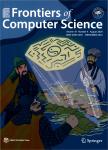Formal engineering methods for software quality assurance
Formal engineering methods for software quality assurance作者机构:Department of Computer Science Faculty of Computer and Information Sciences Hosei University Tokyo 184-8584 Japan
出 版 物:《Frontiers of Computer Science》 (中国计算机科学前沿(英文版))
年 卷 期:2012年第6卷第1期
页 面:1-2页
核心收录:
学科分类:08[工学] 0835[工学-软件工程] 081202[工学-计算机软件与理论] 0812[工学-计算机科学与技术(可授工学、理学学位)]
主 题:Formal engineering methods software quality assurance
摘 要:Conventional software engineering on the basis of informal or semi-formal methods is facing tremendous challenges in ensur- ing software quality. Formal methods have attempted to address these challenges by introducing mathematical notation and calculus to support formal specification, refinement, and verification in software development. Their theoretical contributions to the discipline of software engineering are significant. However, in spite of their potential in improving the controllability of software process and reliability, formal methods are generally difficult to apply to large-scale and complex systems in practice because of many constraints (e.g., limited expertise, complexity, changing requirements, and theoretical limitations). Re- searches on the integration of formal methods into conventional software engineering technologies and processes are likely to create effective ways to transfer formal methods to industry for software productivity and quality. One of the examples is the development of the structured object-oriented formal language (SOFL) and its associated SOFL method for industrial software development.



